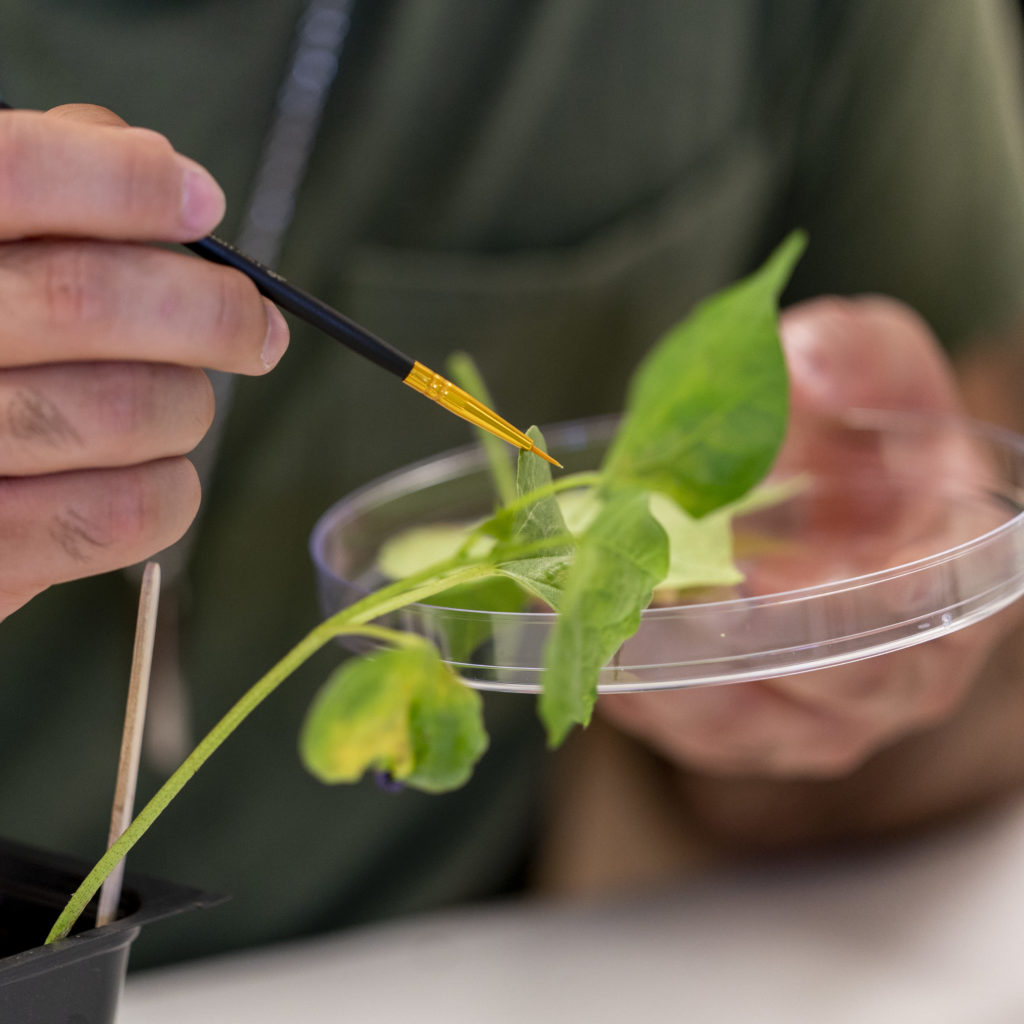
Department of Entomology Strategic Plan
The following outlines the vision, mission, and strategic goals for the Department of Entomology.

Vision
The Department of Entomology is a dynamic community of faculty, students, and staff, synergized by national and international visiting scholars, and preeminent in the world for excellence in research, teaching, and extension in entomological and forensic & investigative sciences.
Mission
The Department’s mission is to generate impactful entomological and forensic knowledge that will improve lives through innovative science-based solutions and educate and train students with the highest current standards for competencies in entomology and forensic & investigative science disciplines so that they will be able to solve present and future societal and environmental challenges.
Strategic Goals
- Modernize education efforts to include cutting-edge research and novel technologies and their applications.
- Identify long-term and impactful agricultural, ecological, and human health needs, and engage with interdisciplinary teams to address those needs.
- Optimize the department’s organizational structure to enhance internal and external engagement improving efficiency and effectiveness in addressing priorities.
- Develop innovative and relevant educational materials for stakeholders delivered using modern approaches and technologies.
Objectives
Strategic Goal 1: Modernize education efforts to include cutting-edge research and novel technologies and their applications.
- We will identify and survey the department stakeholders to adapt the education of our students to their needs.
- Integrate technology to elevate our teaching laboratory experiences to serve our growing needs.
- Establish sub-discipline tracks within the Entomology Major.
Strategic Goal 2: Engage with interdisciplinary teams to address long-term and impactful agricultural, ecological, and human health needs.
- Contribute solutions to modern problems threatening global public health by capitalizing and building on the existing strengths outlined below.
- The study of interactions between insects and plants.
- Pathogen/Vector/Host
- Genetic Pest Control (e.g., RIDL, SIT, Gene drives, RNAi-based technologies, etc.)
- Ecology
- Biology of pollinators
- The study of interactions between insects, humans, and other animals.
- Pathogen/Vector/Host
- Genetic Pest Control
- Contribute solutions to problems arising due to changes in climate and land use by capitalizing and building on our existing strengths
- The development of sustainable food, feed, and fiber production.
- Insects as a Feed and Food Source (animal feed)
- Integrated Pest Management (effective, environmentally friendly, and sustainable methods)
- Genetic Pest Control
- The development of resilient, beneficial, and sustainable land and habitation use in urban settings.
- Landscape Engineering (less susceptible to insect pests / More attractive to beneficial insects)
- Integrated Pest Management (effective, environmentally friendly, and sustainable methods)
- Genetic Pest Control
Strategic Goal 3: Optimize the department’s organizational structure to enhance internal and external engagement, improving efficiency and effectiveness in addressing priorities.
- Enhance the integration of AgriLife Research and Extension entomology programs for increased productivity and synergy by fostering collaborative grant writing and research and providing shared graduate student training.
- Improve graduate student experiences through mentorship, training opportunities, and research engagement.
- Enhance collaborations among APT, tenure-track and Agency faculty.
- Create an environment to recognize mutual interests and collaborate on projects, celebrate accomplishments, and facilitate interactions across all three categories of faculty. Develop strategies, expectations, and reward systems to enhance partnerships between off-campus and on-campus faculty and programs.
- Strengthen engagement with external clientele.
- Our department has diverse external clientele, including commodity leaders, industry partners, alumni entrepreneurs, farmers and ranchers, and donors. Effective communication with these stakeholders will sustain their support for our programs.
- Identify our clientele. Clientele engagement will improve departmental visibility to the public and increase funding support. An Advisory Board of external clientele may help identify priorities and track progress on efforts.
Strategic Goal 4: Develop innovative and relevant educational materials for clientele delivered using modern approaches and technologies.
- Invite individuals from student organizations to visit the department and interface with our scientists.
- Produce and deliver short segments and advertise future faculty podcasts.
- Engage with Master Gardener/Master Naturalist/Master Beekeeper groups locally and across Texas.
- Encourage departmental undergraduate and graduate student organizations to increase availability of youth training events at schools in Brazos Co. and counties that contain AgriLife Research and Extension Centers. Beginning by November 2023.